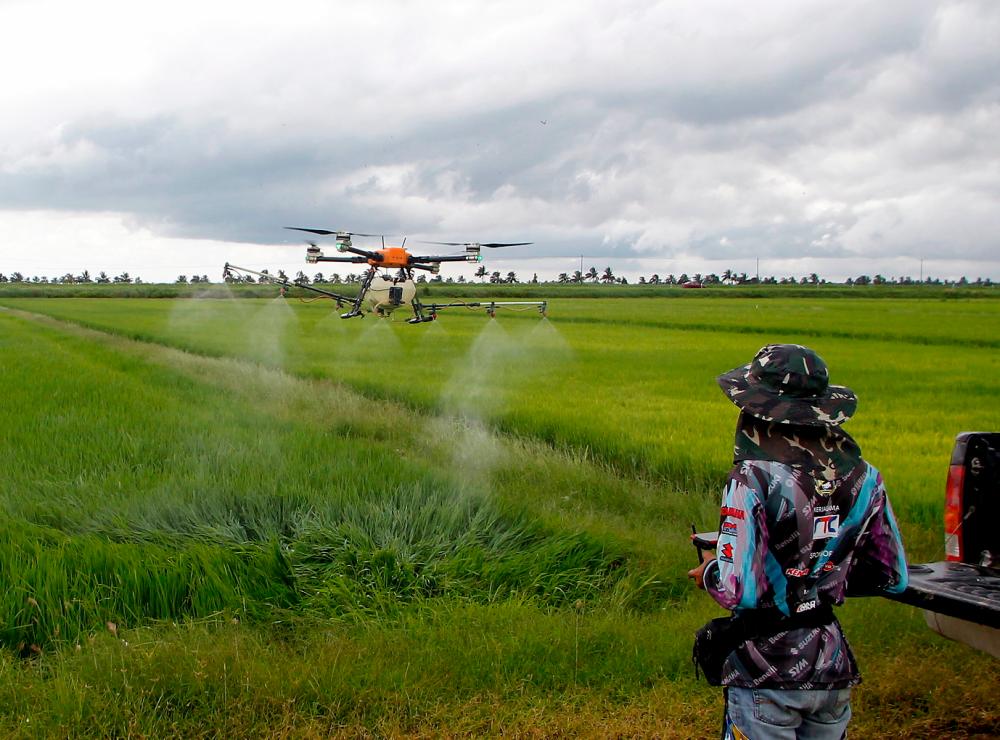PETALING JAYA: Banned Highly Hazardous Pesticides (HHPs) paraquat, endosulfan, and profenophos are being sold through e-commerce platforms serving the Malaysian market.
With the surge in online shopping and the exponential growth of Malaysia’s e-commerce market, online shopping platforms have also become a growing avenue for the sale of pesticide products, the Pesticide Action Network Asia and the Pacific (Panap) said in a report today.
Panap’s new report “Unboxed: Online Sales of Banned Pesticides in Malaysia” details how regulatory loopholes have allowed for the sale of banned HHPs in Malaysia.
“Paraquat, endosulfan, and profenophos are among the 48 banned or restricted pesticides in Malaysia due to their wide-ranging negative impacts on human health and the environment,” the report said.
“These pesticides are known to cause cancer, developmental disorders, diseases, and are linked to many cases of fatalities. In addition, these substances persist in the environment and are highly toxic to animals and other organisms.
“Endosulfan is listed under the Stockholm Convention on Persistent Organic Pollutants and has been listed for elimination in 2011, while paraquat is a candidate for listing in the Rotterdam Convention on the Prior Informed Consent Procedure for Certain Hazardous Chemicals and Pesticides in International Trade.”
However, profit often overshadows responsibility, it added.
Panap’s investigation has revealed that the three banned HHPs (paraquat, endosulfan, and profenophos) in Malaysia are openly sold on e-commerce platforms.
Report findings include:
These three banned pesticides are banned in Malaysia but are sold for use in Malaysia which contravenes Malaysian laws (the 1974 Pesticides Act) and its heavy penalties.
Banned pesticides are sometimes being sold under the brand names of major agrochemical companies.
However, these products may be counterfeit or undisposed stocks, as the label designs differ from official company labels or are products that have been discontinued.
Banned HHPs are available in large quantities, with minimal restrictions on purchase or stockpiling.
Online listings often attempt to conceal the pesticides’ true nature and toxicity, with the names of active ingredients misspelled or blacked out.
They also lack adequate descriptions or instructions for handling, use, or storage – a violation of the International Code of Conduct on Pesticide Management.
Banned pesticides are sold domestically, distributed from northern states such as Kedah, Penang, and Kelantan, or imported from countries like Vietnam, China, and Thailand, despite being banned in some of these origin countries.
Based on user reviews, banned HHPs are frequently used without proper personal protective equipment (PPE), such as gloves or masks, both in domestic and farming settings.
Sellers of banned HHPs employ various marketing strategies on e-commerce platforms, offering special deals such as free shipping, discounts, rebates, and cashback vouchers.
“While national laws and international conventions exist to regulate pesticides, enforcement of these regulations remain inadequate. Manufacturers, traders, and other opportunists continue to circumvent the law by utilising unlicensed traders and e-commerce platforms to market banned pesticides, posing significant risks to human health and the environment.
“The failure of e-commerce platforms to regulate the sale of illegal/banned pesticides puts consumers in peril, as they unknowingly purchase and use highly toxic pesticides. The Malaysian government needs to strictly regulate these e-commerce platforms and their sellers, and to stop the online sales of banned pesticides,” said Sarojeni Rengam, Panap Executive Director.
Panap emphasised that consumers need to be aware of the hazards of toxic pesticides, report their irresponsible sales, and move towards safer, healthier alternatives such as agroecological practices.
“Agroecology – or farming which replaces toxic chemicals with practices that are in harmony with nature – must be recognised, prioritised, and supported as ‘good agricultural practice.’ Agroecology has been shown to result in agricultural produce that is safer, not just for local consumers and export markets, but also for farmers and their children who have the right to a clean, healthy, and sustainable environment,” Rengam added.













